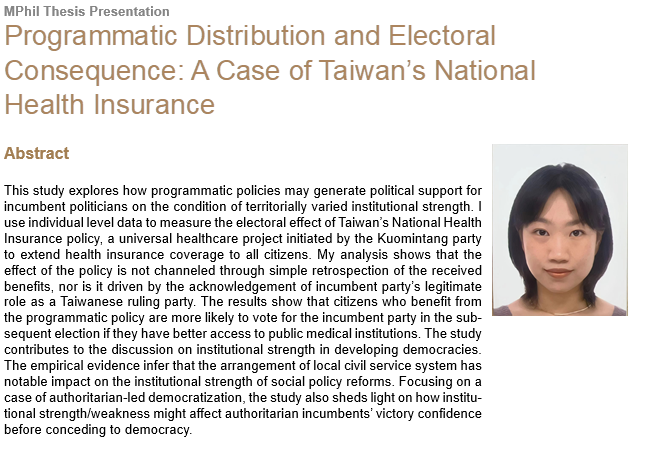Abstract
This study explores how programmatic policies may generate political support for incumbent politicians on the condition of territorially varied institutional strength. I use individual level data to measure the electoral effect of Taiwan’s National Health Insurance policy, a universal healthcare project initiated by the Kuomintang party to extend health insurance coverage to all citizens. My analysis shows that the effect of the policy is not channeled through simple retrospection of the received benefits, nor is it driven by the acknowledgement of incumbent party’s legitimate role as a Taiwanese ruling party. The results show that citizens who benefit from the programmatic policy are more likely to vote for the incumbent party in the subsequent election if they have better access to public medical institutions. The study contributes to the discussion on institutional strength in developing democracies. The empirical evidence infer that the arrangement of local civil service system has notable impact on the institutional strength of social policy reforms. Focusing on a case of authoritarian-led democratization, the study also sheds light on how institutional strength/weakness might affect authoritarian incumbents’ victory confidence before conceding to democracy.

